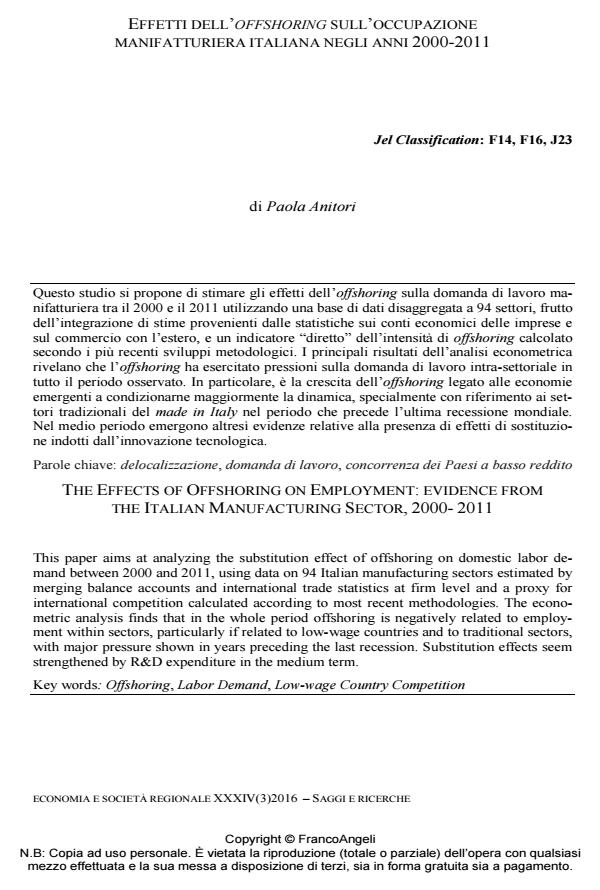The effects of offshoring on employment: evidence from the italian manufacturing sector, 2000- 2011
Journal title ECONOMIA E SOCIETÀ REGIONALE
Author/s Paola Anitori
Publishing Year 2017 Issue 2016/3
Language Italian Pages 37 P. 144-180 File size 675 KB
DOI 10.3280/ES2016-003009
DOI is like a bar code for intellectual property: to have more infomation
click here
Below, you can see the article first page
If you want to buy this article in PDF format, you can do it, following the instructions to buy download credits

FrancoAngeli is member of Publishers International Linking Association, Inc (PILA), a not-for-profit association which run the CrossRef service enabling links to and from online scholarly content.
This paper aims at analyzing the substitution effect of offshoring on domestic labor demand between 2000 and 2011, using data on 94 Italian manufacturing sectors estimated by merging balance accounts and international trade statistics at firm level and a proxy for international competition calculated according to most recent methodologies. The econometric analysis finds that in the whole period offshoring is negatively related to employment within sectors, particularly if related to low-wage countries and to traditional sectors, with major pressure shown in years preceding the last recession. Substitution effects seem strengthened by R&D expenditure in the medium term.
Keywords: Offshoring, Labor Demand, Low-wage Country Competition
Paola Anitori, Effetti dell’offshoring sull’occupazione manifatturiera italiana negli anni 2000-2011 in "ECONOMIA E SOCIETÀ REGIONALE " 3/2016, pp 144-180, DOI: 10.3280/ES2016-003009